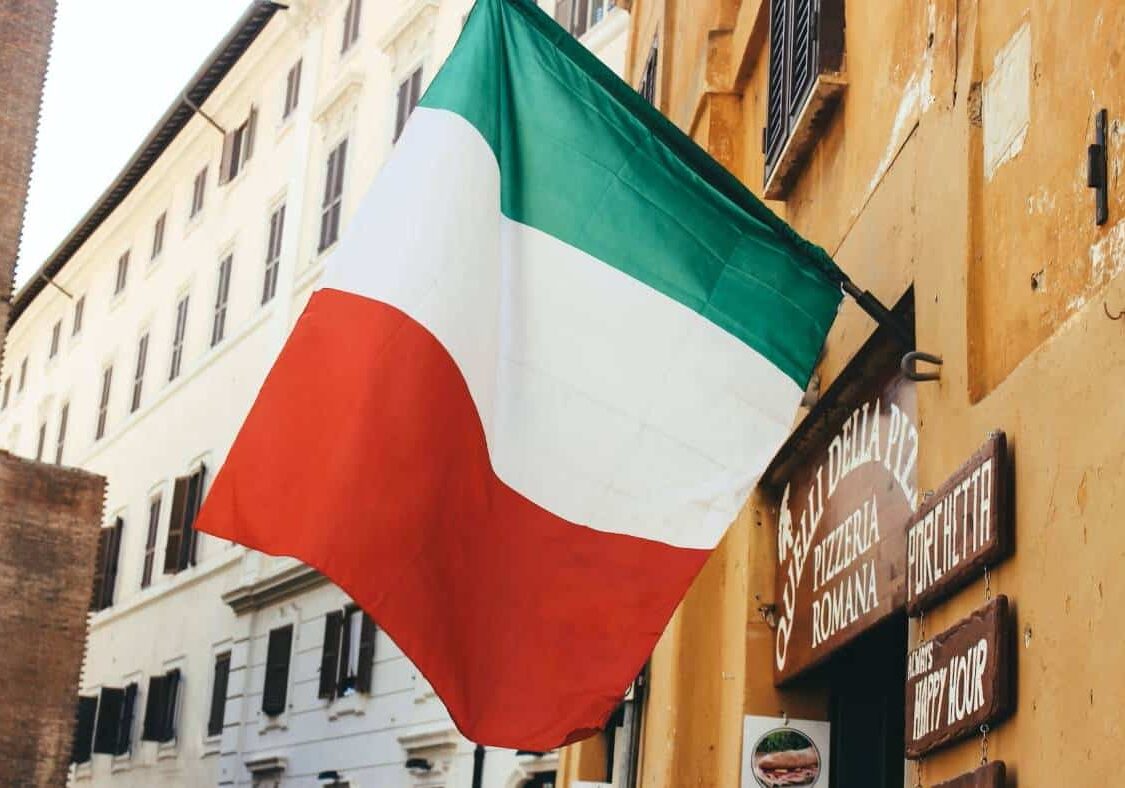
Since 1992, Italy has permitted dual citizenship, allowing individuals to hold multiple nationalities without renouncing their original one.
There are multiple pathways to obtaining Italian dual citizenship, including citizenship by descent (jure sanguinis), naturalization, marriage, and residency.
In this comprehensive guide, we’ll cover how to obtain Italian dual citizenship, as well as eligibility requirements, application procedures, and key benefits.
- Does Italy allow dual citizenship?
- Benefits of Italian Dual Citizenship
- Required Documents for Italian Dual Citizenship
- Italian Dual Citizenship Application Process
- Cost of Italian Dual Citizenship Application
- List of Countries that Permit Dual Citizenship with Italy
- Renouncing Italian Citizenship
- Italian American Dual Citizenship
Does Italy allow dual citizenship?
Yes, Italy allows dual citizenship. Italian citizens can hold multiple citizenships without being required to renounce their original nationality. This applies to individuals who acquire Italian citizenship through descent (jure sanguinis), marriage, naturalization, or other means.
Benefits of Italian Dual Citizenship

- Live and work freely in the European Union: As an Italian citizen, you gain the right to live, work, and study in all EU member states without needing a visa or work permit.
- Healthcare access: Italy’s public healthcare system provides high-quality and affordable medical services, including hospital care and prescriptions.
- Travel within the Schengen Area: Enjoy visa-free travel to 27 European countries in the Schengen Zone, making travel across Europe easy and unrestricted.
- Education benefits: Italian citizens pay lower tuition fees at public universities in Italy and can also apply for scholarships specifically for Italian citizens.
- Social security and pension: You can contribute to and benefit from Italy’s social security and pension systems, which can be beneficial if you plan to retire in Italy or any EU country.
- Property ownership: Italian citizens can purchase property in Italy or other EU countries without restrictions, which can be advantageous for investment or relocation purposes.
- Tax benefits: Depending on your residency and income, you may benefit from Italy’s favorable tax treaties with other countries, possibly reducing your overall tax burden.
- Inheritance rights: As an Italian citizen, you and your family members can inherit property in Italy under favorable legal terms, simplifying the inheritance process.
- Italian passport: Holding Italian dual citizenship grants you access to an Italian passport, one of the most powerful in the world. This passport allows visa-free travel to over 190 countries, including the U.S., Canada, and Japan.
- Cultural and Legal Rights: Being an Italian citizen allows you to fully participate in Italian culture and heritage and access its inheritance and family law legal system.
How to Obtain Italian Dual Citizenship
Italy offers several routes to citizenship, each with its own requirements. Individuals can qualify under specific conditions through ancestry, residency, marriage, exceptional contribution, or birth. Here are the main ways to obtain Italian citizenship.
Citizenship by descent (Jure Sanguinis)
Dual Italian citizenship can be acquired through Italian heritage. Italian citizenship by descent (jure sanguinis) allows nationality to pass from Italian ancestors without a generational limit. To qualify for Italian citizenship by descent, you must have an ancestor who:
- Was born in Italy (any generation).
- Was alive and still an Italian citizen on March 17, 1861 (Italy’s unification).
- Did not naturalize in another country before July 1, 1912.
Before 1948, women couldn’t pass citizenship to their children — this may require a court ruling. Despite these rules, many people with Italian heritage are still eligible.
Citizenship by naturalization (Residency)
Non-EU citizens can obtain Italian citizenship through naturalization, which requires long-term residency. The standard requirement is ten years, which is reduced for those with Italian ancestry or special circumstances.
Some specific rules apply: If an Italian ancestor naturalized when their child was an adult, the applicant may still qualify for citizenship by descent. However, if the ancestor naturalized before birth or while the child was a minor, they do not qualify. In this case, they can obtain a visa and apply for citizenship after three years of residency instead of ten.
For investors, the Italy Golden Visa offers a path to residency by investment. It doesn’t grant immediate citizenship, but it lets you live in Italy and apply for naturalization after meeting the residency period. Similarly, the Italy Digital Nomad Visa provides a way for remote workers to live and work in Italy. The residence permit is valid for one year. It can be renewed multiple times, allowing you to stay long enough to qualify for permanent residence and citizenship after meeting stay requirements.
However, minimum stay requirements vary based on background, status, and country of origin.
Citizen types | Minimum stay requirement |
Non-EU citizens | Must have resided in Italy for at least 10 years. |
EU citizens | Must have resided in Italy for at least four years. |
Refugees | Eligible after five years of residency. |
Individuals born in Italy to foreign parents | They can apply after turning 18 if they have lived in Italy continuously since birth. |
Citizenship by marriage (Jure Matrimonii)
Marriage to an Italian citizen is a simple way to get Italian citizenship. Spouses of Italian nationals can apply after being married for a certain period. This waiting time is shorter if the couple has children, which shows a strong connection to Italy before getting citizenship. To apply for Italian citizenship by marriage, you must:
- You must be married to an Italian citizen for two years if you live in Italy or three years if you live in another country (the time is cut in half if you have children together).
- Show basic Italian language skills (B1 level) by passing a test.
- Have no serious criminal record.
Unlike some countries that make you give up your original nationality, Italy allows dual citizenship. This means you can keep your current nationality while becoming an Italian citizen.
Citizenship by exceptional contribution
Italy grants citizenship to individuals who have made exceptional contributions in fields like science, culture, sports, or humanitarian work. This form of citizenship is an honorary recognition given to those who bring prestige to Italy. Italian citizenship is granted by presidential decree upon recommendation from government officials rather than through an application-based process. Athletes, artists, and scholars have received it this way, making it a merit-based path rather than a legal one.
Citizenship by Birth (Limited Jus Soli)
Italy does not automatically grant citizenship to those born on its soil (jus soli) unless at least one parent is Italian. This reflects the country’s emphasis on ancestry over birthplace in determining nationality. However, children born in Italy to foreign parents can apply for citizenship if they have lived in Italy continuously until adulthood. This rule acknowledges that individuals raised in Italy, integrated into society, and educated there should have a path to citizenship.
Required Documents for Italian Dual Citizenship
You’ll need to gather specific documents to apply for Italian dual citizenship. Here’s a general list of the required documents:
- Birth Certificate: Your original or certified copy, with a full legal name, date of birth, and place of birth. It may need to be translated into Italian and legalized (apostilled).
- Proof of Italian Ancestry: This is for those applying through descent. You will need the birth, marriage, and death certificates of your Italian ancestors, along with proof that they never renounced their Italian citizenship.
- Marriage Certificate: If you’re applying through marriage, you will need your marriage certificate and proof of your spouse’s Italian citizenship.
- Proof of Continuous Italian Citizenship: For descent applications, proof that your Italian ancestor(s) did not renounce or lose their Italian citizenship is required. This can include old records or documents proving their Italian status.
- Proof of Residency: For those applying based on residency, you’ll need documents showing that you’ve been residing in Italy for a specific period (usually 10 years for non-Italian citizens).
- Passport or Identification: A valid passport, national ID card, or other proof of identity, along with copies.
- Application Form: You’ll need to fill out the specific application form for Italian citizenship.
- Recent Photos: Passport-sized photos may be required for identification.
- Tax Records or Proof of Income: Documents showing your financial standing may be necessary depending on your situation.
Remember, the required documents can vary based on your specific situation, such as whether you’re applying through ancestry or marriage. It’s always a good idea to check with the Italian consulate or embassy in your country to make sure you have the correct paperwork before starting your application.
Dual Citizenship Italy Application Process
Here is the step-by-step guide on how to start and complete your Italian dual citizenship application:
Step 1. Determine your eligibility
Before you start the application process, determine if you qualify for Italian dual citizenship. You can apply for Italian citizenship by marriage, descent, or residency. Determine which citizenship best suits your needs and move on to the next stage of the process.
Step 2. Prepare the necessary documents
The next step is to prepare the necessary documents. The documentation depends on the citizenship path you’re planning to take, but the most important documentation generally includes:
- Birth certificates
- Marriage certificates
- Death certificates
- Naturalization records
- Marriage certificates
Step 3: Translate and legalize documents
All documents not in Italian need to be translated by a certified translator. Foreign documents may need to be legalized or apostilled in their country of origin, a process that confirms their authenticity.
Step 4. Complete submitting your application
- Jure Sanguinis: If you’re applying through descent, you must submit your documents to the nearest Italian consulate or embassy in your home country. If applying in Italy, you can apply to the local municipality.
- Marriage or Residency: If applying through marriage or residency, you would typically apply to the local municipality in Italy or the Italian consulate in your home country.
Step 5: Wait for processing
The process can take a significant amount of time, ranging from a few months to several years, depending on your specific case and the consulate’s workload. For ancestry applications, the process can be especially lengthy if documentation is hard to gather.
Step 6: Citizenship interview (if required)
Some consulates or municipalities may require an interview, especially if you’re applying through marriage or residency. They might ask questions regarding your knowledge of Italy and its culture.
Step 7. Become an Italian citizen
Once your application is submitted, you must wait for it to be approved. Depending on the complexity of your case and the consulate’s workload, this process can take several months or even years. After approval, you will receive confirmation of your Italian citizenship, allowing you to obtain an Italian passport and exercise the rights of a dual citizen.
Cost of Italian Dual Citizenship Application

Here’s the summary of the most important costs when applying for Italian dual citizenship:
- Application fees: Application fees are usually non-refundable, and you must pay them when you submit your application to the consulate. Depending on the type of citizenship application, fees range from €300 to €500.
- Translation and certification fees: Translation and certification for each document may cost between €30 and €100.
- Obtaining documents: To obtain the most important documents, such as birth certificates, death certificates, and marriage certificates, you might need to request records from Italian archives. Naturally, this involves fees, and their cost will depend on the number of needed documents.
You should also consider that you might need to provide additional documents. While the upfront costs can be significant, the benefits of obtaining Italian dual citizenship can outweigh the cost of fees in the long term.
List of Countries which Permit Dual Citizenship with Italy
Here’s the list of countries which have permitted dual citizenship with Italy:
- United States
- Canada
- Australia
- United Kingdom
- Ireland
- France
- Germany
- Spain
- Portugal
- Sweden
- Belgium
- Netherlands
- Switzerland
- Norway
- New Zealand
- South Africa
- Brazil
- Argentina
- Chile
- Mexico
Renouncing Italian Citizenship
Renouncing Italian citizenship means relinquishing the rights and benefits of being an Italian citizen, such as access to EU citizenship, healthcare in Italy, and the Italian education system. In most cases, Italian nationals renounce dual nationality if a foreign country doesn’t permit dual citizenship with Italy.
To start the process, submit a request to the Italian consulate. You must provide proof of your intention to retain foreign citizenship, complete an application, and pay a non-refundable fee. Remember, you can revert this decision and reclaim your Italian citizenship. However, Italian law says you must undergo another formal application process.
Italian American Dual Citizenship
You can obtain dual citizenship in the United States and Italy if you can prove Italian ancestry with a continuous, unbroken line of citizenship. Since 1992, Italy has permitted dual citizenship with the U.S., so American citizens won’t need to renounce their American citizenship when applying.
Many Italian Americans can become dual citizens of the US and Italy through Italian citizenship by descent. If they have dual citizenship in Italy, they can transfer citizenship to their children’s direct bloodline. This is an amazing opportunity for Italian Americans to explore their Italian ancestry, live in Italy, and take advantage of all that Italian citizenship offers, such as residing abroad in Italy or other EU countries.
How Can Global Citizen Solutions Help You?
Global Citizen Solutions is a boutique migration consultancy firm with years of experience delivering bespoke residence and citizenship by investment solutions for international families. With offices worldwide and an experienced, hands-on team, we have helped hundreds of clients worldwide acquire citizenship, residence visas, or homes while diversifying their portfolios with robust investments.
We guide you from start to finish, taking you beyond your citizenship or residency by investment application.

Frequently Asked Questions About Dual Citizenship Italy
Does Italy allow dual citizenship?
Yes, Italian dual citizenship is available to people who can demonstrate Italian ancestry. You can apply for dual citizenship through your local Italian consulate.
Who qualifies for dual citizenship in Italy?
You can become a dual citizen of Italy by applying for Italian citizenship by residency, ancestry, or marriage. While you have to reside in Italy for citizenship by residency and marriage, there are no requirements for minimum stay for those who apply for citizenship by descent.
Can I apply for Italian citizenship online?
You can start your application for Italian citizenship online, but you must turn in the documents in person at the Italian consulate.
How much does it cost to apply for Italian dual citizenship?
The cost of Italian dual citizenship depends on the application type and your location. However, fees range from €300 to €500. You should also consider that you have to pay for translating documents and some additional fees.
What are the disadvantages of Italian dual citizenship?
Disadvantages of Italian dual citizenship include potential tax obligations in both countries and issues with legal rights in both countries. However, this shouldn’t pose major issues. You get more benefits from having Italian dual citizenship.
Can I have dual citizenship in the USA and Italy through my Italian ancestry?
Yes, you can have dual citizenship in the USA and Italy if you can prove an unbroken lineage of Italian ancestry. Italy recognizes jure sanguinis (citizenship by descent), meaning if one or both of your parents were Italian citizens at your birth, you may qualify. Since 1992, Italy has allowed dual citizenship with the U.S., so you won’t need to renounce your American citizenship.
What are the benefits of having Italian dual citizenship?
Having Italian dual citizenship offers several benefits, such as the ability to live, work, and study in Italy and other EU countries. It also provides the right to vote in Italian elections, access to Italy’s healthcare and social systems, and the ability to pass citizenship down to future generations.
How does Italian dual citizenship affect taxes?
Italian dual citizenship can impact taxes, including inheritance tax. If you’re a tax resident of Italy, you’ll be subject to Italian income tax on worldwide income and may also face inheritance tax on assets inherited from Italian residents. However, if you live outside Italy for over 183 days, you may only pay taxes on Italian-sourced income. Double taxation treaties can help reduce the risk of paying taxes in both countries.
What are the requirements for dual citizenship in Italy?
Italian citizenship requirements include
having Italian ancestry through citizenship by descent, residing in Italy for a certain number of years, or marrying an Italian citizen. The standard residency requirement for naturalization is ten years, but it can be reduced for those with Italian heritage or in special circumstances.


